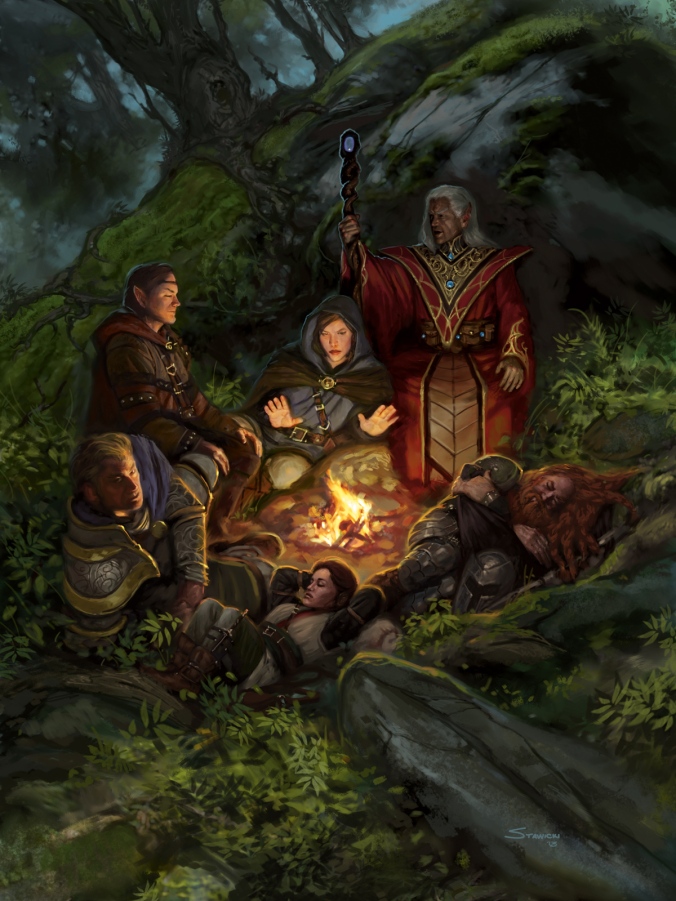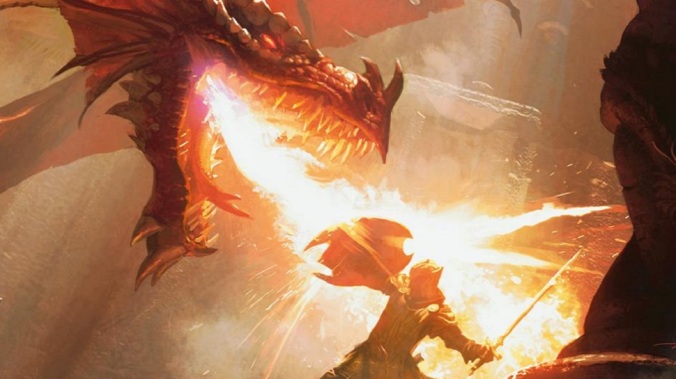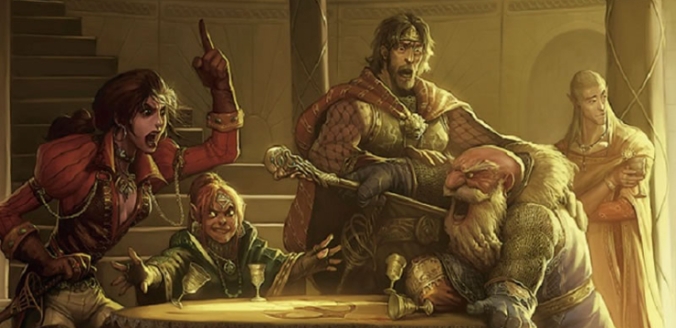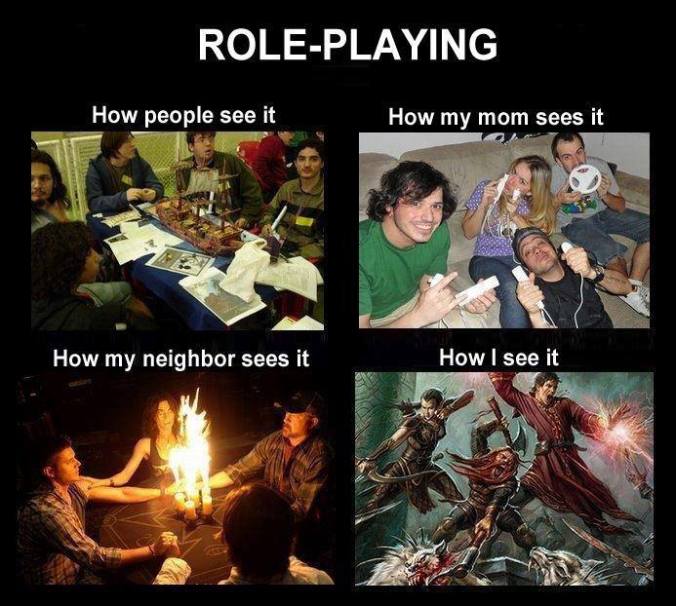I’ve spoken in the past about D&D’s popularity and audience of over four million players worldwide, but did you know there was a time when RPGs like Dungeons & Dragons faced an unfair amount of criticism?
In the 1980’s, D&D got a lot of heat as people, uneducated in what role-playing games really were, believed that D&D was Satan worship, “real” demon summoning, or other equally hysteric claims (psychologytoday.com). David J Ley PH.D even writes in his article that “a group called Bothered About Dungeons and Dragons (BADD) was formed by the mother of a young teen lost to suicide. Because D&D was new on the social scene, was strange, unknown, and had unknown effects, the youth’s suicide was blamed on the role-playing game,” (psychologytoday.com). Thankfully, this panic died down by the 1990’s, but even today many people sneer at tabletop RPGs as wastes of time. However, in a TED Talk, Ethan Gilsdorf advocates the exact opposite: D&D is actually good for you in real life!
Gilsdorf speaks on a lot of good points of D&D and how it is perceived by the public, adding in his own personal experiences as well. “I know what you’re thinking,” Gilsdorf says as he shows himself as a kid playing D&D with some friends, “D&D and other role-playing games – known as RPGs – are make-believe. It’s pretend. Fantasy games are for nerds and dweebs and geeks and dorks and guys, mostly guys who can’t get a date and live in their parents’ basements and have to escape the real world.” But, he goes on to challenge this stereotype, and, in about five main ways, argue how D&D can make you a better person in real life.

His first point is that of collaboration & teamwork. Whether we like it or not, we will have to work with other people at some point, be it a group presentation in school or a big scale project at a company. D&D mandates that players travel in a party, and it is in their best interests to work together to overcome obstacles.
Gilsdorf states, “You and your party have a range of skills and talents to draw from…there is a group of people and everyone plays their part. This lesson can be applied to your life, with your office mates, with your circle of friends, with you family, everybody plays a part. And, it’s okay to rely on each other. I’ve got your back; you’ve got my back. Never split the party.” Learning to be part of a team also gives you a sense of collaborative victory when you succeed together.
Next, Gilsdorf talks about preparedness, innovation, and problem solving. Nearly anything can happen in a D&D session, and players need to be able to think on their feet to respond to tricky situations. Having the right tools and knowing when to use them, learning how to use the environment or NPCs in creative ways to suit your needs, and thinking of a dozen different possible solutions to a puzzle are all skills players must be proficient with.
“Life is like a dungeon. Don’t wander through life without the tools you need to Mcguyver your way out of sticky situations…These role-playing games…train the mind to think of more than one way to solve a problem and make unexpected connections and help you find your alternative paths through the darkness.”

Source: geekandsundry.com
The third point Gilsdorf covers is a bit deeper: character building builds character. Essentially, his idea is that being able to create a character, being able to experiment with different stats, races, classes, morals and ethics, is so important because it allows players to adventure out of their comfort zones in a safe environment. It teaches that taking risks can be good and failure, while painful, is survivable. I agree strongly with this point from experience with my own D&D character, Severa Winddriver. Like me, she is young and naive about the world, yet her confidence, calmness, bravery, and strong morals are traits I wish to have in the real world, traits which I can take on and learn to emulate through D&D sessions.

Gilsdorf’s fourth point deal with empathy and tolerance. This comes from the most core of D&D: role-playing. Players must take on a particular role, be it like their real-world selves or not, and see the world from that character’s viewpoint. It forces them to see things differently at times, and, through role-playing, players can learn to see those real world “enemies” in a different light, with empathy and tolerance.
“Because of the immersive narrative of the game, you and your fellow players are constantly put into situations where you’re interacting with other people and other creatures…and you can imagine what their predicament is, what their situation is, what their point of view is. These fantasy role-playing games are the perfect empathy-training machines for the real world,” Gilsdorf explains.

Source: facebook.com/geekxgirls
His final point is the power of narrative and the imagination.
“We have movies and television shows and video games that offer these immersive experiences, richly textured narratives and worlds, but they don’t engage our imagination in the same way. I think it’s precisely because of role-playing games’ crude tools – dice and pieces of paper and maps and those silly little figurines. You are required to bring your imagination to the gaming table to complete the picture,” Gilsdorf says.
I think this solitary aspect is what most drew me into D&D over a year ago, the idea of a narrative where you can be anyone and anything can happen. It sets the imagination on fire. Being a part of such an immersive, fantastical story with a tight-knit group of friends is what it’s all about, and it is why I ultimately became so passionate about D&D…enough so to author a blog on it and convince all you lovely readers out there to try D&D for yourselves!
So, I’ll leave you with one last inspirational quote from Gilsdorf: “Get out the Doritos and Mountain Dew, arm yourself with pencil and graph paper, and gather around the fire of each other’s imaginations and go on an adventure!”
Some great in-depth points you made here!
LikeLike
Pingback: D&D Stands for Dark and Disastrous | Roll Playing